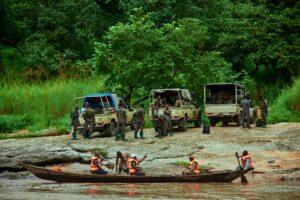The ANI Foundation has announced plans to establish Nigeria’s first commercial eco-tourism lodge in the country.
The move according to the foundation, is aimed at promoting sustainable tourism, while preserving the nation’s rich bio-diversity.
In a statement released on Thursday, in Taraba State, the foundation’s Executive Director, Tunde Morakinyo, emphasized that despite Nigeria’s status as one of Africa’s most bio-diverse countries, its eco-tourism potential remains largely untapped due to insecurity, poaching, and weak enforcement of environmental laws.
“We are determined to demonstrate that eco-tourism in the country’s national parks is possible and will, in fact, generate jobs and income benefiting Nigeria’s economy,” Morakinyo stated.
He expressed optimism that within the next few years, the first commercial eco-tourism lodge would be launched in one of the two national parks where the foundation operates.
The initiative, he said, comes amid growing concerns over the state of the nation’s national parks.
The foundation said that protected areas such as Kainji Lake and Kamuku National Parks have been overrun by criminal elements, making them inaccessible to rangers and tourists.
This the group noted, has severely hampered conservation efforts and turned the country into a hotspot for illegal wildlife trade.
 read also: Gombe partners 2 foundations to improve maternal, child health
read also: Gombe partners 2 foundations to improve maternal, child health
Despite these setbacks, the foundation, according to the statement, has been collaborating with the National Park Service to improve conditions in Gashaka Gumti and Okomu National Parks.
“Over the past four years, ANI has invested heavily in recruiting, training, and equipping rangers, leading to a significant reduction in illegal logging, poaching, and mining, particularly in Gashaka Gumti, which spans Taraba and Adamawa States,” he stated.
Morakinyo further highlighted the broader challenges facing conservation efforts in Nigeria, including rampant habitat destruction due to deforestation, artisanal mining, and urbanization.
He also pointed to climate change, characterized by rising temperatures and extreme weather events, as an additional threat to the country’s fragile ecosystems.
Low public awareness of conservation issues, he noted, also remains another major concession.






